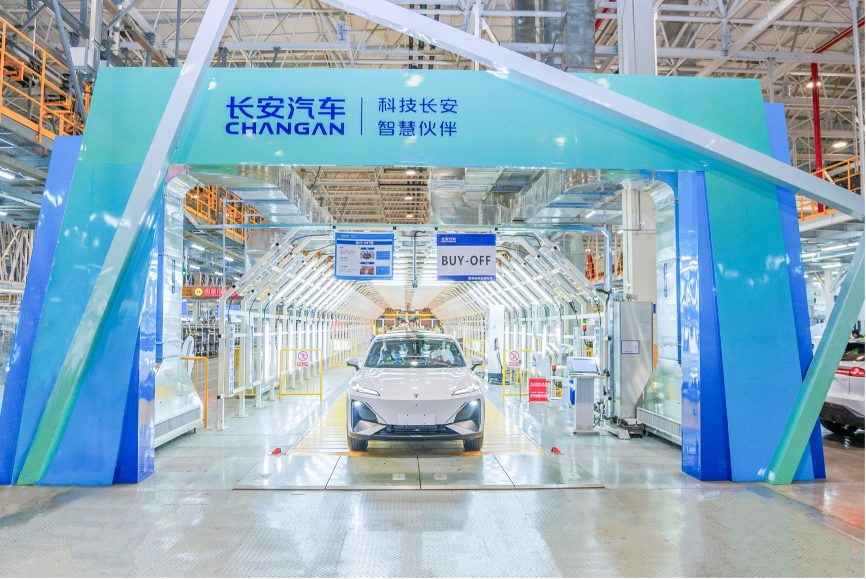 Bridging News
Bridging News
Changan, First Automaker to Gain Approval under Thailand's EV3.5 Policy
Chongqing - Changan Auto, a leading Chinese carmaker, recently announced via WeChat that it signed a memorandum of understanding with Thailand’s Department of Revenue in Bangkok, becoming the first automaker approved under Thailand’s EV3.5 policy.

Changan Auto became the first EV company to receive Thailand’s EV3.5 policy. (Photo/Changan Auto)
A day before, Zhu Huarong, chairman of Changan Automobile, disclosed at the 2024 Global Partner Conference that the company aims to invest over $10 billion in overseas markets by 2030.

Changan Auto aims to invest over $10 billion in overseas markets by 2030. (Graphic/ Vivian Yan)
Thailand’s “EV3.5” policy, running from 2024 to 2027, incentivizes electric vehicle (EV) production with up to 100,000 Thai Baht (approx. USD 2,800) subsidies per vehicle.
The country aims to boost local EV production fourfold by 2025, reducing import tariffs and consumption taxes. However, it mandates companies to produce two local vehicles for every one imported from 2026, increasing to a 1:3 ratio by 2027.
According to Caixin, in addition to Changan Auto, other Chinese automakers, such as Great Wall Motors (GWM) and SAIC Motor’s joint venture SAIC Motor-CP in Thailand, have also signed MoUs with the Thai government.
Chinese EV companies are significantly growing in Southeast Asia, particularly in Thailand. According to Autolife, cited by Xinhua, from January to October 2023, Thailand’s pure electric vehicle sales rose by about 497% year-on-year, with over 80% from Chinese brands.
By December 2023, over 10 Chinese firms, including GWM, SAIC Motor, and BYD, had announced or started building factories in Thailand. Chery and JAC are also entering the Thai market by setting up local assembly lines.
(Fan Hongyi, as an intern, also contributed to this report)
 Related Stories
Related Stories